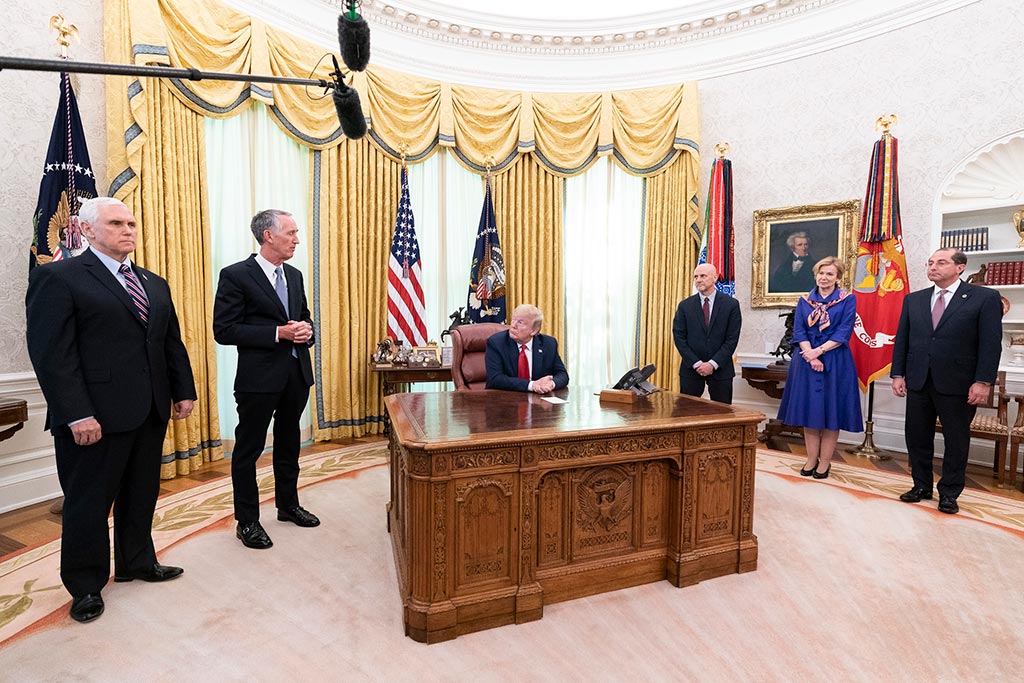
‘Freedom, for what?’ Lenin asked Fernando de los Ríos. ‘Freedom to be free’, the professor of political law and leading Spanish socialist in the 1920s and 30s rightly replied. ‘Multilateralism, for what?’ might be the question today. And the reply cannot simply be ‘to be multilateral’, as some would like. Multilateralism is not an end in itself, but rather a means, a method, not an absolute goal, and has currently lost its way. To begin with, there is no consensus about what we want to cooperate for, what we want to be multilateral for. According to the political scientist Francis Fukuyama, the great global challenges arise not from disagreements about how to cooperate, but rather an aimlessness about the reason to cooperate, stemming from a loss of global consensus. Added to this there is the inability of multilateralism to respond with the complexity required to address the current challenges and the overwhelming ‘Every man for himself!’ response to disasters like COVID-19. As systems theory suggests, only complexity can defeat complexity.
The current coronavirus crisis –the most synchronous and global crisis– could make the illness afflicting multilateralism more acute (due not only to Trump, although it has much to do with the pre-existing loss of US leadership, and with the rise of China) or overcome it, with more international cooperation beyond global health. It is not yet clear. So far, the crisis has not strengthened multilateralism, which seems exhausted. But it is one of the major subjects of international debate, for example in the T20 (the G20’s network of think tanks, this year under Saudi presidency), and various other forums and institutions, some of which Elcano contributes to.
Multilateralism is the alliance of powers in search of common goals. It is opposed to unilateralism (acting alone), to a-lateralism, which can lead to global anarchy and chaos, and to ‘Every man for himself!’. It involves agreements where failure to agree would leave everyone worse off. It is usually linked to a set of international institutions that emerged from the Second World War, some of which, the Bretton Woods economic institutions, served to lay the foundations for what is known as the liberal multilateral order, although it was later followed by other, more global, steps. Multilateralism, while requiring leadership, needs collective intelligence. In some respects, in the midst of confrontation between blocs during the Cold War, there were major doses of multilateralism. It tends to be that more multilateralism is proposed because more problems are global and because it enables conflicts of interest to be managed and overcome peacefully. Multilateralism had, and has, its goals and champions certain values, which are now being cast in doubt. The race to stockpile Remdesivir, a drug used to treat COVID-19, is a clear example of the failure of multilateralism, and does not bode at all well for the management of an eventual vaccine.
Modern multilateralism has come to be associated with the globalisation experienced in recent decades, particularly since the end of the Cold War. Hence, as Dani Rodrik argues, many people –including Trump and his followers– reject both as part of the same package. Now we have entered a period of deglobalisation. But, as Kemal Dervis at Brookings argues, precisely in order to manage this relative deglobalisation in an orderly and peaceful way –for the moment more characterised by restrictions on exports than on imports and by the shortening of global supply and value chains– perhaps more multilateralism is required. This may seem contradictory, but it is not.
The COVID-19 calamity has highlighted a series of vulnerabilities that were already present: a hyper-globalisation that minimised transaction and production costs and maximised efficiency. It is true that it helped to lift billions of people out of poverty, but by dint of generating more inequalities within and between societies. The title, and the content, of a new book by Matthew Klein and Michael Pettis is revealing: Trade wars are class wars. This gives a geopolitical slant to the US politician’s famous dictum that ‘all politics is local’. Just ask Trump for confirmation.
In order to recover, multilateralism needs to be representative, inclusive, effective, and have one, or many, systems of governance and a vision whereby national interests are perceived as better served than in its absence or under other systems, something that is by no means evident.
China is erecting a parallel multilateralism, with basically regional institutions, while at the same time trying to penetrate and shape those that already exist and drive what has been termed ‘global bilateralism’ with the policy/programme of the New Silk Road and other initiatives. Owing to the geopolitical and other rivalries between the US, China and Russia, the UN, particularly its Security Council, has vanished; the General Assembly has fared better, although the same cannot be said of some UN components that have failed to measure up (such as the World Health Organisation). The World Trade Organisation awaits reactivation and in-depth reform. The representation of the International Monetary Fund needs to reflect the new global reality. The G20 has also experienced a loss of solidity and solidarity. And meanwhile there are new aspects, from the governance of the Internet to the regulation of artificial intelligence, ethically and otherwise, that require –in fact work is already under way– a new type of global governance, with many more public and private actors. This is what we refer to as ‘inductive governance’, which needs to empower citizens, something that subsidiarity has not achieved. This new multilateralism and global governance needs to rely much more on cities, which have played a central role in this crisis, have a much more public-private emphasis and be much more multi-level.
In a world that in the best of cases is polycentric, or lacking a centre (the famous G-0), the prospects are not good. According to Fukuyama, ‘national and international institutions will be weak and reeling after years of abuse, and it will take years to rebuild them—if it is still possible at all’.
These days multilateralism is more important than ever, because it provides a way of countering nationalism and populism. Collective intelligence is needed to build a new multilateralism for the 21st century, for COVID-19 (a pandemic that may persist) and post-COVID-19, and to prevent and manage other calamities that may be on the horizon. It has to address better ways of managing major problems, even though they may have unknown solutions, and the global commons, such as the environment, but also services that have become indispensable global assets –as evident during lockdown– such as the Internet and cybersecurity, and the COVID-19 vaccine and treatments currently being investigated. The role of large corporations is already fundamental in this new multilateralism, as is reflected in countries’ interoperable apps for tracking and tracing infected cases, many of them based on a system jointly provided by Google and Apple (a case of private multilateralism?).
Renewing multilateralism requires that it should focus on wellbeing and equality; that it embraces diversity; that it has solidity, legitimacy and causes no harm; that it respects subsidiarity (often confused with best practice) and has systematic coherence. In other words, it needs a whole-of-policy approach, a focus that encompasses all aspects of policies.
It also requires the participation of the US. If Trump is re-elected in November it will be difficult and highly restricted, but not impossible. If Biden wins, multilateralism will stage a comeback, but will take a very different form from the one it has had in recent decades. We face the prospect not of the previous status quo being restored, but the need for a new construct, a reinvention.
As Shaun Riordan and Mario Torres argue, the construction of effective norms of behaviour or ‘rules of the game’ requires engagement with ‘state and non-state actors, identifying the preferred outcomes they share and constructing coalitions around these’. The construction of such coalitions is a fundamental task of diplomacy.


